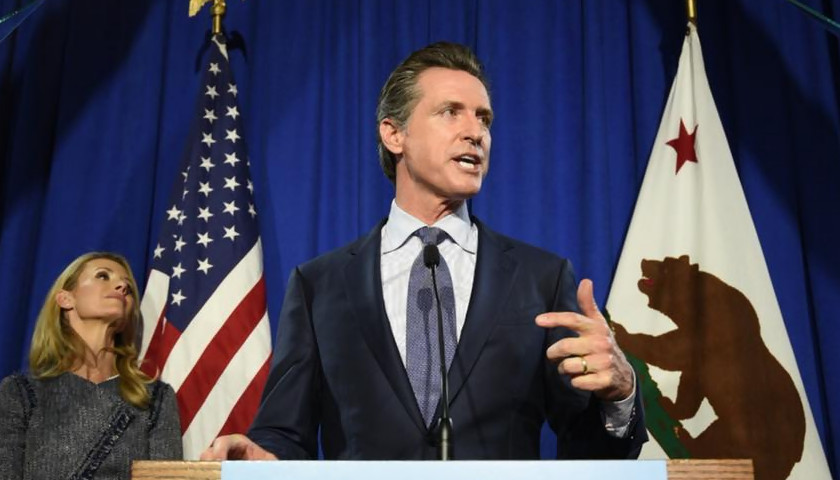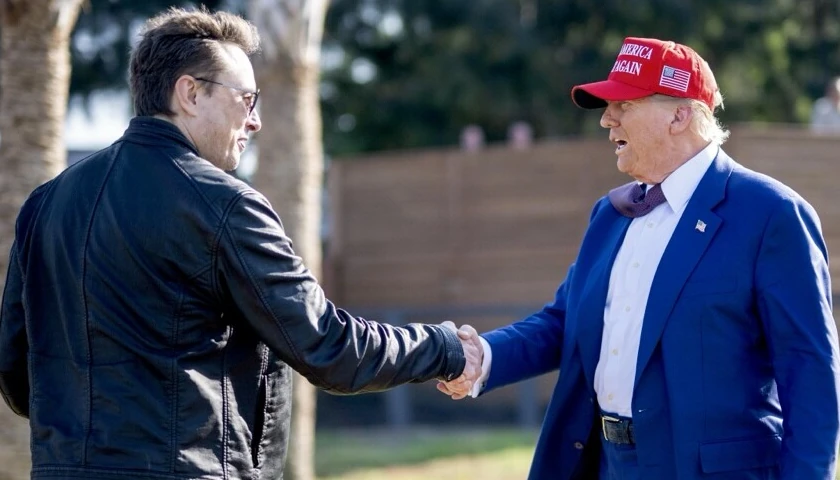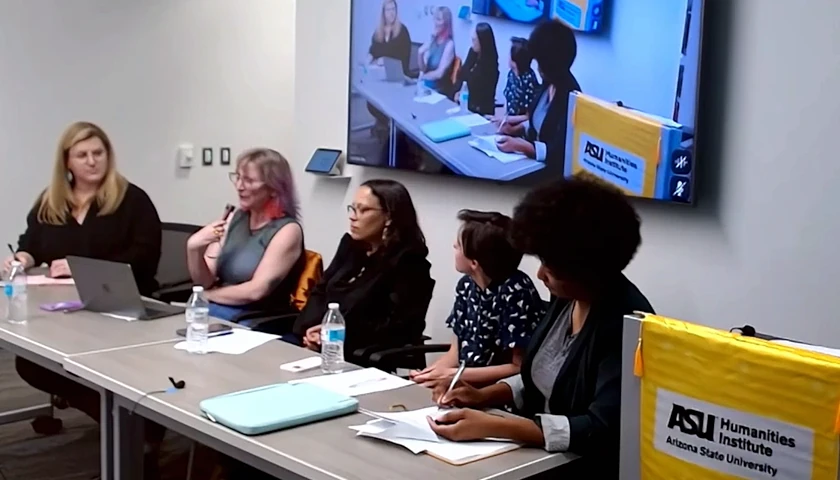by Edward Ring
Gavin Newsom may not be the worst governor in the history of the United States, but he is a figurehead for what is definitely the worst ruling class this nation has ever seen. The elites who prop up hapless tyrants like Gavin Newsom are utterly self-serving, filthy rich, and concerned only with appearances and power.
California is a political and financial stronghold for the progressive oligarchy that controls America. But California also has some unique characteristics that could result in it becoming a center of opposition to this progressive oligarchy.
To begin, California has a critical mass of voters who understand exactly what they’re up against and will fight enthusiastically for change. California delivered 6 million votes for Trump in 2020, more than any other state. Texas, still a red state, only had 5.9 million Trump voters last year, and battleground Florida had only 5.8 million Trump voters. Within California, the Trump contingent may be a minority, but there is a hell of a lot of them, and they’ve all had it with Gavin Newsom and everything he represents.
The Golden State has another advantage, one that may seem counterintuitive at first. California is America’s first wholly multiethnic state, with 39 percent Latino, 37 percent white, 15 percent Asian, and six percent black, and three percent “American Indian and other.”
The point here? California has already become America’s future.
Despite this fact, and the supposed inevitability of Democratic Party rule that it portends, the dissent currently roiling California is not coming exclusively from the white minority. Such a simplistic theory cannot explain voting results on some of California’s key 2020 ballot initiatives, where 52 percent of voters rejected increasing property taxes, 56 percent rejected “no bail” laws, 57 percent rejected the reinstatement of racial preferences, 58 percent supported the rights of independent contractors, and 60 percent rejected rent control. None of these margins would have happened without significant contributions from nonwhite voters.
For now, the multiethnic character of California’s electorate still guarantees victories for Democrats that rely on “antiracism” and the “climate emergency” to secure votes. But those rhetorical weapons convince liberal white voters as easily as they convince nonwhite voters. And, if anything, it is the nonwhite voters who are waking up to the fact that this rhetoric is a masquerade, a con, a distraction, a way to keep the ruling elite in power and deny the aspirations of ordinary people.
It doesn’t take a lot of digging to find evidence that California’s ruling class, its one-party state, its supposedly enlightened progressive oligarchy, have betrayed the people. Unaffordable housing. Record homelessness. Rising crime. Failing schools. Independent contractors thrown out of work. Burning forests. And now, a locked-down population while the prisons are emptied.
The answers for correcting these failures are not elusive, nor are they partisan. Repeal extreme environmentalist regulations that have made it impossible to construct affordable housing without subsidies. Restore laws against intoxication, petty theft, and vagrancy, and watch half the homeless population suddenly find shelter with friends and relatives. Help the rest in inexpensive supervised encampments where sobriety is a condition of entrance. Implement school choice and break the destructive monopoly of the teachers’ unions. Further protect the rights of independent contractors. Bring back the timber industry to thin the forests and create jobs.
What part of this agenda would be anathema to any clear-thinking person based on race, gender, or his or her position on climate change? None of it. The reason this agenda is not implemented is that wealthy Californians are making billions milking the system. As more and more candidates, of all backgrounds and ideologies, step up to demand effective solutions, all the money in the world will not protect these special interests.
Oligarchy in America, hiding in plain sight behind progressive nostrums, is approaching its high-water mark. Where will the tide turn first? Don’t be surprised if it’s in California.
This is why the movement forming to recall California Governor Gavin Newsom may have been initiated by Republicans but has gathered support from everyone. A nonpartisan, multi-ethnic coalition is forming in California that is going to demand practical solutions instead of more corruption. They are going to hold these negligent, self-serving politicians accountable and replace them, starting with the state’s governor.
With more than 1.2 million signed petitions already in hand, and tens of thousands more arriving daily, the chances that Newsom will have to fight for his political life in a special recall election have never been higher. How the proponents have built a powerful coalition of committees is an example of innovation that offers a new model for qualifying initiatives, recalls, and referenda, one that will not be restricted to billionaire corporations or one-party legislatures.
According to the recall’s lead proponent, retired sheriff Orrin Heatlie, the volunteer signature gathering army that has been growing all summer is now deploying over 5,000 people every weekend to gather signatures. “They’re tired but they keep plugging along like they always have,” said Heatlie, adding that “more and more people volunteer as they learn about the progress of the movement.”
The latest counts, confirmed by representatives at both of the main recall committees, indicate over 200,000 signatures have already been collected through a direct mail effort, and over 1 million signatures have been gathered by volunteers. The original volunteer committee, the California Patriot Coalition led by Heatlie, has been active since June 2020. The committee running the direct mail campaign, Rescue California led by Anne Dunsmore, has only been doing mass mailings for a few weeks.
Using direct mail instead of professional signature gatherers is a risk that appears to be paying off. Paid signature-gathering campaigns currently face the multiple obstacles of COVID-19 restrictions on where they can set up, as well as the impact of California’s recently passed Assembly Bill 5, which destroys the traditional business model of hiring signature gatherers as independent contractors.
Even before these new hurdles were added, the costs for signature gathering had already gone up because the number of firms able to do statewide campaigns consolidated at the same time as the number of well-funded special interests willing to pay whatever it takes increased.
For example, Uber, or the real estate industry, or the association representing dialysis clinics, and others, can easily spend tens of millions of dollars on a signature-gathering campaign. But activist groups rarely have unlimited funds.
This is why the synergy generated by the original committee, the California Patriot Coalition, which successfully recruited a grassroots army, combined with Rescue California’s innovative direct mail approach, may become a precedent-setting breakthrough to be emulated in future initiative qualification campaigns.
“It is exciting to see the response to our effort,” Anne Dunsmore told American Greatness. “We are way ahead of our projections, and we absolutely expect to reach our goal of 700,000 signed petitions via direct mail. The signed petitions we receive are validating at the astonishing rate of 98 percent, each response averages over two signatures, and we also have received donations from over 8,000 people, including over 500 per day in the past week.”
Dunsmore also recognized the tremendous contributions of the original recall committee. “We are enormously pleased with our partnership with the California Patriot Coalition and their volunteer effort,” she said.
A key member of the California Patriot Coalition is Robin McCrae, who echoed Dunsmore’s sentiments about the synergy between the two committees. “We are all well-intentioned, passionate people who care about making change for the better and we all have a common goal and common purpose, and our parallel efforts will get the job done,” McCrae said.
With thousands of active volunteers, managing the logistics and messaging of the group is a challenge. Heatlie explained how that challenge was recently complicated by Facebook.
“We have 75 local Recall Gavin groups on Facebook with over 200,000 members,” said Heatlie, “and in the days following the events on January 6 in Washington D.C., all of our administrators were locked out of posting or commenting on posts. Over 150 of our administrators and regional managers were locked out of their Facebook groups.” The ban won’t lift until January 23.
The irony of Facebook leaving these group pages up but locking out the administrators is that the group leaders lost the ability to screen user posts and comments. This meant the risk of non-administrators leaving posts or comments that might offend Facebook went up, not down, by virtue of their ban.
“If violations were entered on our Facebook pages,” said Heatlie, “we couldn’t remove them anymore.”
Opponents of the recall point to incendiary comments online, attributable to a few people and often posted in the heat of the moment. But a few objectionable comments only represent a minute fraction of the vast movement behind the recall. It is worth wondering who is helped when Facebook prevents recall organizers from even moderating their online forums.
McCrae nicely summarized the motivations of the vast majority of recall supporters. “The heart and soul of this recall are hard-working volunteers who are dedicated to saving California,” she said. “They are fighting for the right to work, to save their businesses, and protect their freedom from government overreach. They recognize that California is no longer thriving. Our beautiful state is deteriorating and we are trying to save it.”
Dunsmore summed up the opportunity represented by tapping tremendous grassroots energy and supplementing that with traditional professional campaigning. “We are working together with passion, but not reckless passion,” she said. “That’s hard when people are coming up with policies that are so atrocious and polarizing. When something is really important and it’s bad, you can’t just get mad, you have to fix the problem with a level head.”
What Newsom faces with this recall is a new coalition—a populist movement growing in political and logistical savvy every day, allied with a group of seasoned professionals who dove in against the odds to support them. In the minds of millions of voters, too many California politicians have failed to recognize and correct the challenges facing Californians. As they watch the “walls close in” on Newsom, they can rest assured they will be next.
Americans who voted for Trump for all the right reasons—his common-sense approach to critical issues that would have been considered moderate only a few years earlier—should take heart from what is happening in California. They should recognize that everybody wants affordable homes and excellent schools, that everybody wants law and order, that everybody wants common-sense environmental laws that don’t, for example, leave overgrown forests to burn like hell every summer.
This has nothing to do with ideology or ethnicity. Recent voting patterns in California prove this. It only requires bold and practical political agendas, level-headed passion and persistence, outspoken leadership, and recruitment based on principles that are as uncompromising as they are inclusive.
– – –
Edward Ring is a senior fellow of the Center for American Greatness and co-founder in 2013 of the California Policy Center.
Photo “Gov. Gavin Newsom” by Gov. Gavin Newsom.





